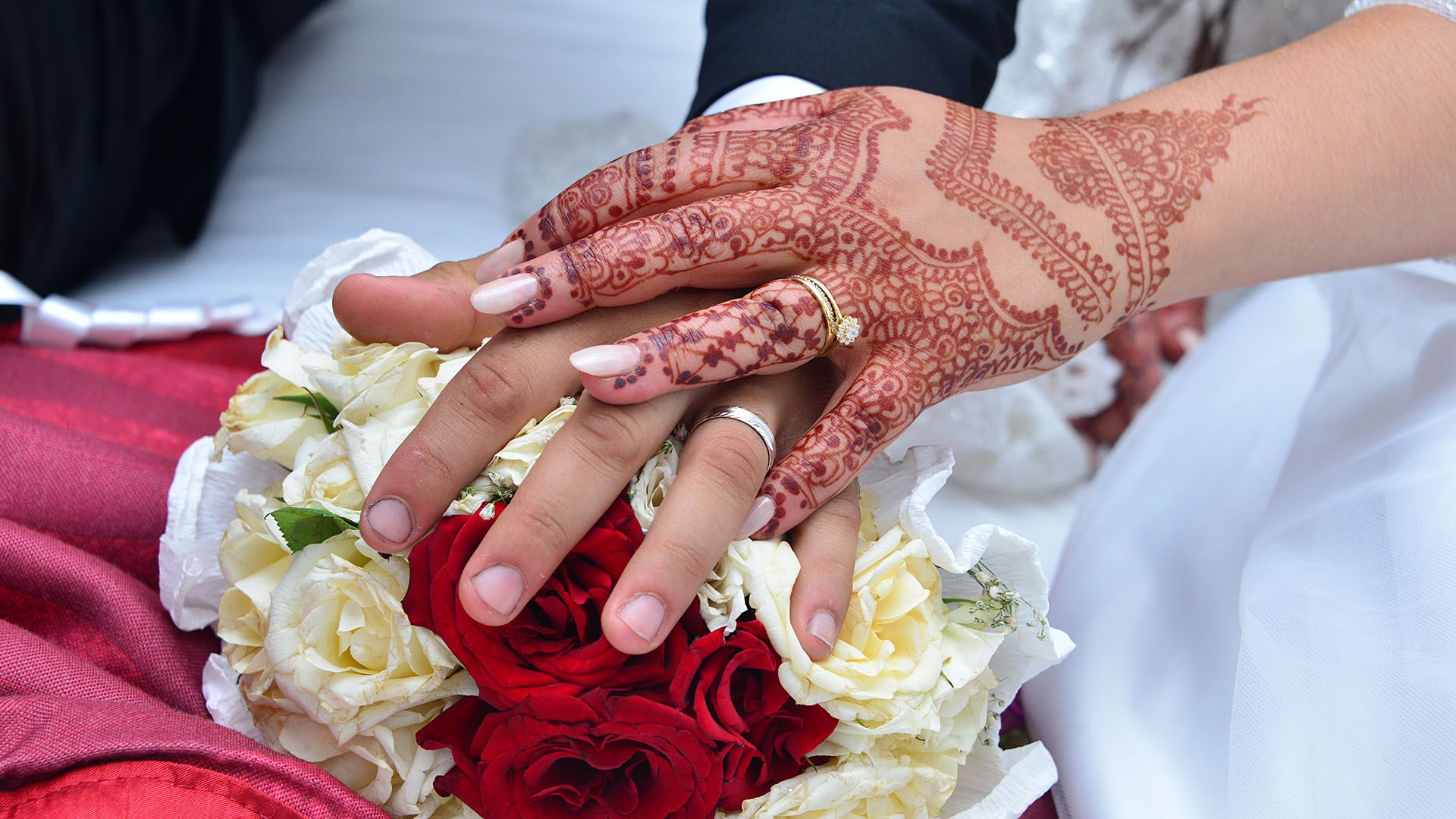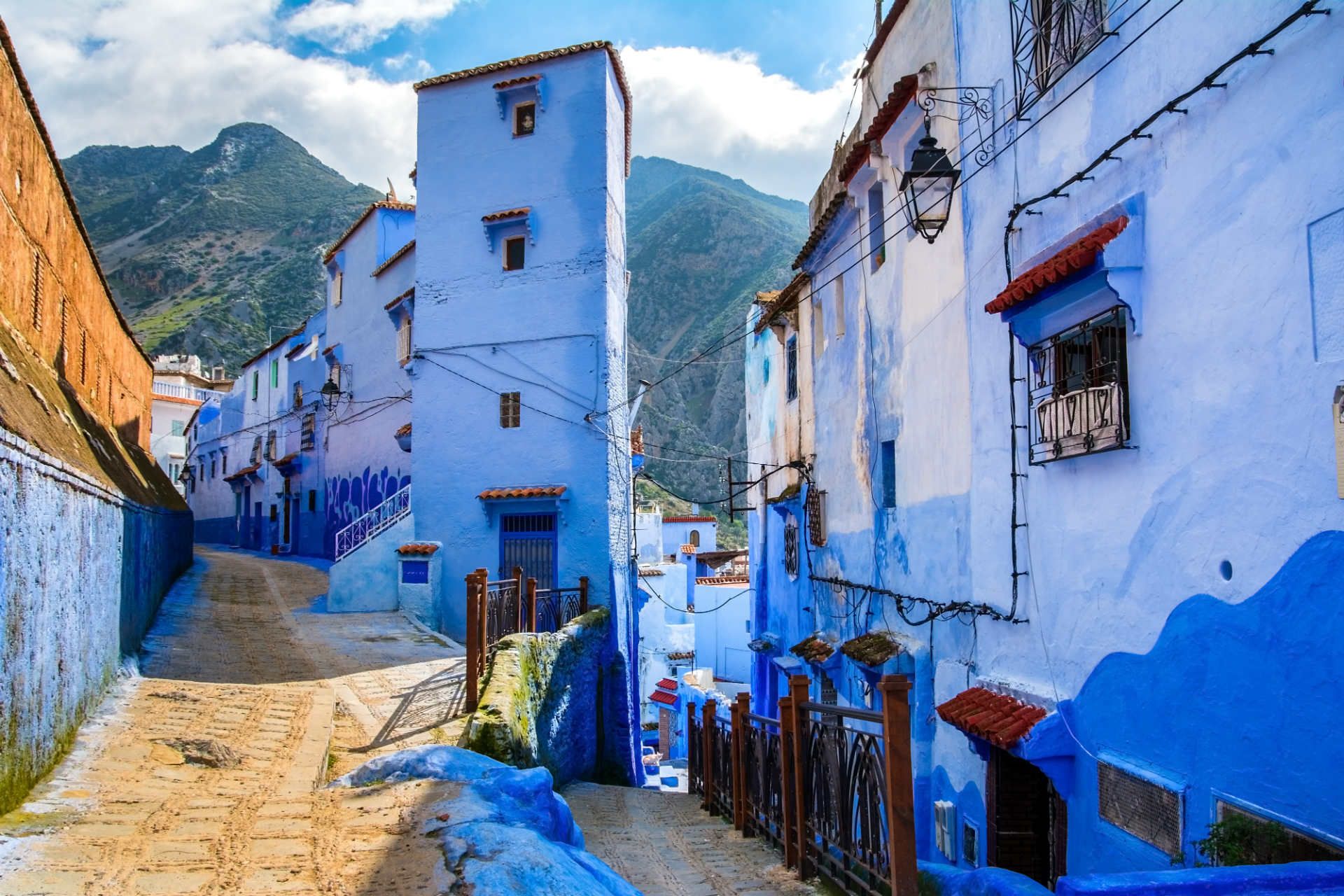Travel advice for Morocco
From travel safety to visa requirements, discover the best tips for traveling to Morocco
Book your individual trip, stress-free with local travel experts
Plan your tailor-made trip with a local expert
Book securely with money-back guarantee
Travel stress-free with local assistance and 24/7 support
Fatima Vieira
Our experience was amazing. Very well organized. During our stay there was a problem with a Riad , Insight guides solved the problem in a very professional...
Read all reviews ⤍February in Morocco offers a diverse tapestry of climates, from coastal breezes to mountain chill, creating a unique canvas for diverse travel experiences. February falls within the shoulder season, striking a balance between the bustling high season and the quieter low season. This presents an opportune time for travellers to explore Morocco's enchanting landscapes and historical sites with fewer crowds. Here's our guide to the weather in Morocco in February.
February offers a delightful balance of manageable weather, fewer crowds, and cost-effectiveness. It's an excellent time to explore the country's diverse landscapes and cultural treasures.
Whether you're navigating the labyrinthine medinas, trekking the mountains, or succumbing to the allure of the desert, February promises a remarkable journey through Morocco.
Ready to take your trip to Morocco? See our guide to the best time to visit Morocco.

Toubkal Mountains, Morocco © Shutterstock
February offers a delightful blend of manageable weather, fewer crowds, and cost-effectiveness in Morocco. The sea remains cool — an average of 15-16°C (59-61°F) — so swimming may not be at the top of your to-do list.
In northern Morocco, February brings a comfortably cool climate. Cities like Tangier and Chefchaouen typically experience daytime highs around 16-19°C (61-66°F), allowing for enjoyable exploration without the scorching heat of summer.
February in central Morocco, which includes Marrakech and Casablanca, offers mild temperatures with daytime highs ranging from 17-20°C (63-68°F). The weather is ideal for immersing yourself in the rich culture and history of these cities.
Planning a trip to Marrakech? Start preparing for your trip with our guide to the best accommodation options in Marrakech.
For adventure seekers heading to the Atlas Mountains, February is an excellent time for hiking and exploration. At lower elevations, daytime highs may reach 12-15°C (54-59°F), providing a refreshing climate for outdoor activities. Higher altitudes will be cooler, so make sure to prepare accordingly.
In southern cities like Agadir, February offers pleasant daytime temperatures ranging from 18-24°C (64-75°F). The mild weather invites you to enjoy the coastal beauty and various outdoor activities.

Tizi n'Test Pass through Atlas Mountains, Morocco © Shutterstock
When it comes to February, Morocco continues to offer a largely dry and pleasant climate. Coastal areas may see scattered showers, but the interior and southern regions remain relatively rain-free.
This dry spell makes February an excellent time for exploring the country's various attractions, whether you're navigating the ancient souks, trekking through the Atlas Mountains, or savouring the tranquillity of the Sahara Desert.

Train in Morocco © Shutterstock
February in Morocco is a hidden gem for savvy travellers. The weather in Morocco in February is delightful, there are fewer crowds, and cost-effectiveness makes it an excellent time to explore this captivating country. While you might encounter more tourists than in January, the ambience remains relatively serene, allowing you to appreciate Morocco's beauty without the hustle and bustle.
When it comes to costs, February is a budget-conscious traveller's dream. Accommodation and activity prices are often quite reasonable during this off-peak season, making it an attractive option for those seeking affordability without compromising on experience.
Want to take your dream trip to Morocco while skipping the hours of planning and research? Our tailor-made trip service allows you to travel hassle-free. Our journeys are meticulously designed by local travel experts and can be entirely adapted to your preferences.
Or see our other Morocco itineraries.

The weather in Morocco in February is great for bike tours © Shutterstock
Morocco in February is a delightful blend of moderate weather, cultural richness, and natural beauty. To make the most of your Moroccan journey during this month, consider the following tips and explore the diverse array of activities that await.
Packing for the weather in Morocco in February requires careful consideration of the weather and local customs. The days are generally comfortable, but the evenings can be chilly, so bring layered clothing.
To shield yourself from the sun, don't forget sunglasses, sunscreen, and a wide-brimmed hat. It's essential to respect local customs by dressing modestly, especially when visiting religious sites. Comfortable footwear for the extensive walking you'll likely do and an adaptor for Moroccan power outlets are also essential
To have a harmonious and respectful experience in Morocco, understanding and adhering to local customs is key. Dressing modestly, particularly in conservative areas, is crucial as it demonstrates respect for Moroccan culture.
If your visit coincides with Ramadan, show awareness by refraining from eating, drinking, or smoking in public during daylight hours to respect the fasting locals. Greeting the locals with phrases like "Salam alaykum" (peace be upon you) is a friendly gesture that goes a long way.

The weather in Morocco in February is great for historical sites © Shutterstock
Navigating Morocco's transportation options is essential for a smooth journey. The country boasts an efficient train network connecting major cities, making trains a convenient choice. Buses are a cost-effective means of travelling between cities, offering a chance to experience local culture. In Moroccan cities, you'll encounter petit taxis for short trips within the city and grand taxis for longer inter-city journeys.
Morocco is a popular tourist destination, especially in February when the weather is favourable. To ensure you secure accommodations and tours, it's advisable to book in advance, particularly in bustling cities like Marrakech, Fez, and Casablanca, where accommodations can fill up quickly.

Imilchil Marriage Festival worth visiting in February © Shutterstock
Once you've packed, understood the customs, and familiarized yourself with transportation, it's time to dive into the delightful activities that Morocco offers in February. Here's a brief exploration of each of the following options:
February in Agadir comes alive with the vibrant Carnival, celebrating Moroccan culture through parades, lively music, and traditional dance performances. Join the locals and immerse yourself in the festivities, embracing the warm and welcoming atmosphere.
The picturesque coastal towns of Morocco, such as Essaouira, Casablanca, and Agadir, beckon in February. These destinations offer a delightful blend of seaside charm, delectable seafood, and various water sports for those seeking adventure. The weather in Morocco in February makes for a great time to experience the coast.
Venturing into the Atlas Mountains allows you to partake in the unique Imilchil Marriage Festival, celebrating love and matrimony with traditional Berber customs and rituals. The backdrop of the towering mountains adds to the enchantment of the ceremony.

The sunset on the beach in Essaouira, Morocco © Shutterstock
Chefchaouen, famous for its mesmerizing blue-painted streets, is a tranquil town ideal for leisurely strolls. You can shop for intricate handicrafts, savour the flavours of Moroccan cuisine, and simply get lost in its captivating atmosphere.
Exploring Morocco's rich history is a rewarding experience, particularly in ancient cities like Fes and Marrakech. These cities boast intricate architecture, bustling medinas, and historical landmarks that provide insights into the country's rich past.
Morocco is renowned for its exquisite rugs and carpets. Local markets and souks are treasure troves for those seeking unique, handcrafted carpets as souvenirs or home decorations.

Chefchaouen, The Blue City ©Shutterstock
From travel safety to visa requirements, discover the best tips for traveling to Morocco
written by
Dre Roelandt
updated 02.05.2024
Dre Roelandt is originally from the United States but lives and works in Berlin, Germany. Dre is a freelance writer and artist with a passion for travelling. They are an in-house Content Editor at Rough Guides.